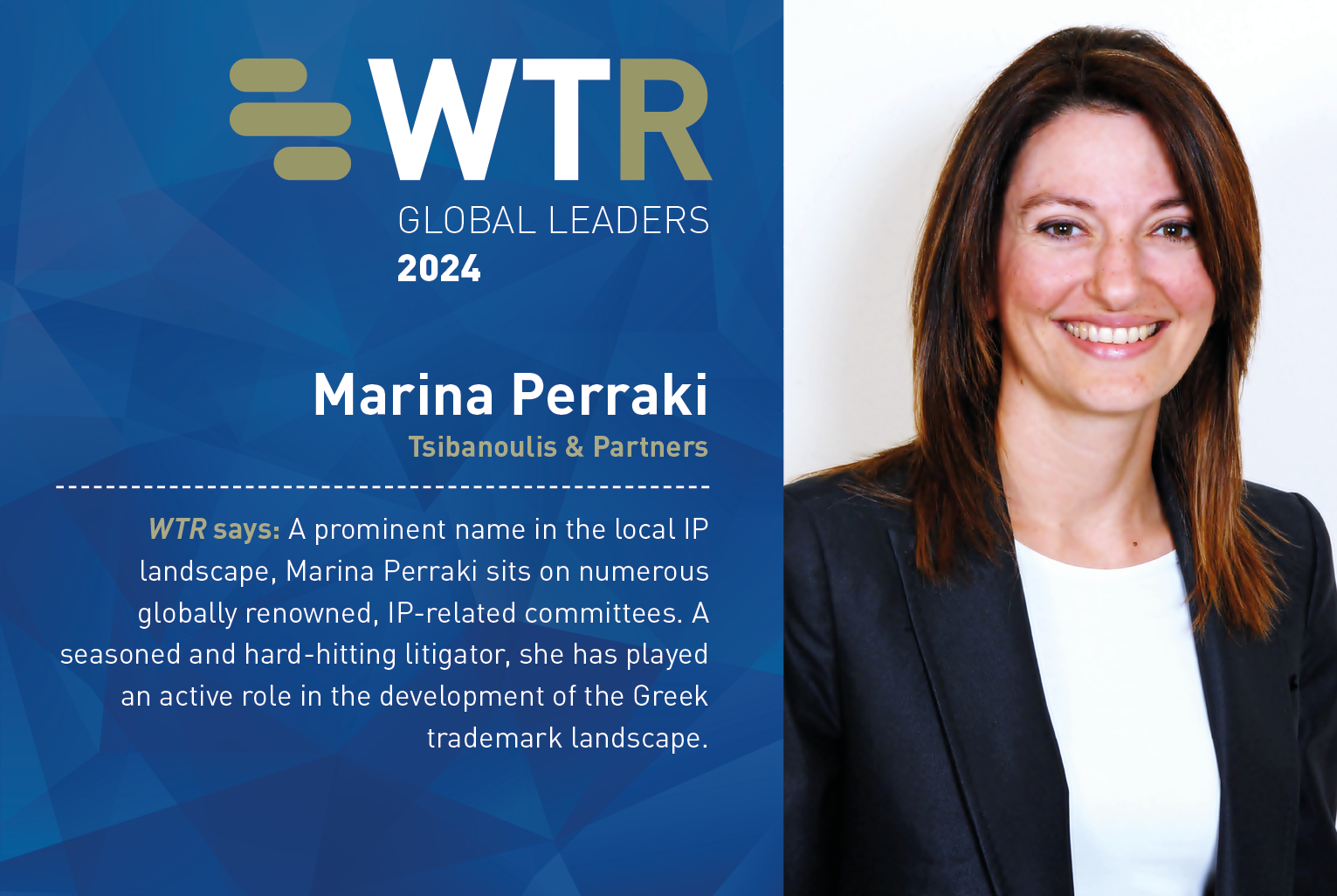Marina Perraki
In your view, what is the biggest challenge for brand owners looking to safeguard against online and offline counterfeiting threats, and how are you helping clients overcome these?
Challenges in the online environment are becoming more and more relevant with new issues being brought before the courts and IP offices, ranging from use of third-party marks on virtual goods to filing trademark applications covering NFTs. The basic principle – and a global trend at the moment – is to afford similar protection to the online world as is afforded in the physical world. Brand owners must come up with new mechanisms for monitoring infringement of their marks on the Internet and combatting counterfeiting. There are still issues that need to be tackled through case law and legislative initiatives, including successful counterfeit detection and enforcement in the metaverse, tackling the difficulty in identifying infringers and establishing court jurisdiction. Brand owners must consider how new technologies (eg, metaverse platforms) might be abused for the sale of fakes. It is important to develop internal strategies and exchange best practices with other market players and law practitioners to build an effective and safe environment.
You are currently the only Greece-based WIPO domain name dispute panellist. How have domain name disputes evolved in Europe over the past 12 months, and what are your top three recommendations for a successful enforcement strategy?
The Uniform Domain Name Resolution Policy and the similar mechanisms that exist for a plethora of top-level domains, including .eu, provide really valuable tools for brand owners to quickly and effectively retrieve domain names that have fallen into the wrong hands – and with relatively low costs. The success of the mechanism is evidenced by the record number of cases that are handled each year at WIPO. The cybercasters are out there waiting for the right moment to ride on the success and efforts of right holders. The latter must be vigilant and monitor the market, mitigating risks by duly renewing and protecting their rights and acting upon all abuse without hesitation. Monitor, react, implement is the golden rule for securing protection in the domain name world.
How would you address and respond to client concerns about using generative AI in private practice?
In my view, no matter how evolved AI is and shall continue to become, it can never replace humans. It is not a matter of being better or worse, AI is and will always be different. I see AI as an ally and assistant for our work, one that will increasingly facilitate the legal profession without replacing it. So clients can be assured that AI shall only help, enrich and save costs rather than undermine the quality of legal work.
You have amassed extensive experience in trademark law, dealing with international clients across multiple sectors. What inspired you to pursue a career in this field, and what advice would you give to someone considering a similar path?
Trademark law is a very unique area of law. It has characteristics like no other, stemming from the fact that it is inexorably linked with market reality, it is territorial and hugely harmonised worldwide. This offers a unique environment for an international level playing field, immense resources in legal doctrine or case law and engaging in creative exchange with entrepreneurs and business departments of multinationals around the globe. One must be very aware of the market reality, constantly keeping up to date with case law and making the most of the international trademark community, of which we are all a part. In my view, this is a career path that nears perfection if one loves trademarks and the logic behind them, which is a world of its own.
As former chair of the INTA Famous and Well-Known Marks European Committee, what should brand owners be aware of when it comes to enforcing their rights in Europe, especially those attached to well-known marks?
Fortunately for well-known brand owners, the legislative framework in Europe is extremely favourable. Through the valuable guidance of the EU Court of Justice, the legal situation in Europe marvellously balances the interests of effective competition and adequate brand protection by fostering benefits for both businesses and consumers. Important tools such as protection against use and registration for dissimilar goods, protection against free riding, the different mechanisms for calculating damages and the tools for securing evidence and information create a very safe environment for famous brand owners, with predictability and effective means of enforcement.
Marina Perraki
Partner
[email protected]
Marina Perraki is a partner at Tsibanoulis & Partners and holds a PhD in trademark law from Queen Mary University of London. She was among the group of experts selected to draft the bill for the implementation of the new EU Trademark Directive in Greece. Dr Perraki is a seasoned litigator with an impressive track record. She has practised trademark law for more than 20 years and works mainly with international clients.
